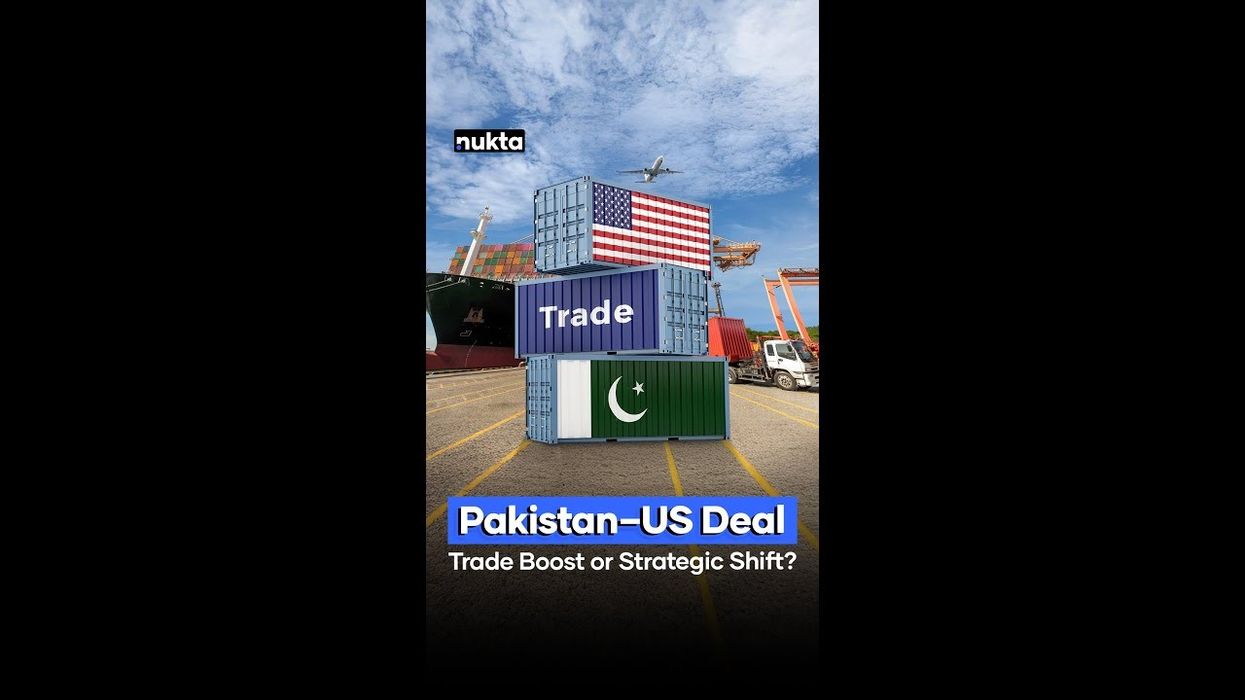US-Pakistan trade deal may lead to broader strategic partnership: analyst
KTrade’s Naveed Vakil says rollback of digital tax, tariff relief, and long-term energy collaboration mark deepening bilateral ties beyond oil
Business Desk
The Business Desk tracks economic trends, market movements, and business developments, offering analysis of both local and global financial news.
The recently announced Pakistan-United States trade deal may mark the beginning of a broader strategic partnership, with implications beyond oil exploration, according to Naveed Vakil, managing director at KTrade Securities.
Commenting on the development in an interview with Nukta, Vakil said the final contours of the trade deal are yet to be officially disclosed, but key elements are already surfacing, including a rollback of Pakistan’s digital presence proceeds tax on U.S.-based tech firms and anticipated tariff relief for Pakistani exporters.
“On the technology front, Pakistan has agreed—at the U.S.’ request—to withdraw its tax on digital sales abroad,” Vakil noted. “Some rationalization of U.S. tariffs on Pakistani exports is also expected.”
Expanding economic cooperation
While President Donald Trump’s initial announcement emphasized oil reserves development, Vakil said Washington’s interest spans multiple sectors. “The United States is showing interest in collaborating on Pakistan’s oil exploration and mining of metals and minerals. The specifics of this partnership are expected to unfold in the coming days,” he said.
The government is reportedly considering joint ventures with U.S. companies in offshore exploration, a move that could lower entry risk for Pakistan and pave the way for technology transfer and institutional expertise in the extractive industries.
Long-term energy implications
Vakil stressed that while the potential benefits for Pakistan’s energy import bill are significant, they remain long-term in nature. “Policy formulation, corporate involvement, and commercial monetization may take up to five years,” he cautioned.
“Energy sector reforms, particularly in addressing circular debt, gas pricing, and curtailment issues, will be critical as new policy frameworks emerge, potentially guided by U.S. involvement.”
These remarks come amid growing public scrutiny over Pakistan’s high energy import costs.
Climate and structural reform
Vakil also linked the U.S.-Pakistan collaboration to broader climate resilience goals, noting that Pakistan remains aligned with the International Monetary Fund (IMF) on a range of environmental and policy reforms under existing agreements.
“U.S. interest in Pakistan’s technology and energy sectors could be pivotal,” he said, adding that successful cooperation will require not just diplomatic alignment but real progress on regulatory and structural fronts.
The remarks provide a deeper lens into what could become a multi-sectoral partnership as Pakistan seeks to attract foreign investment, improve macroeconomic stability, and transition toward self-reliance in energy and technology.











Comments
See what people are discussing